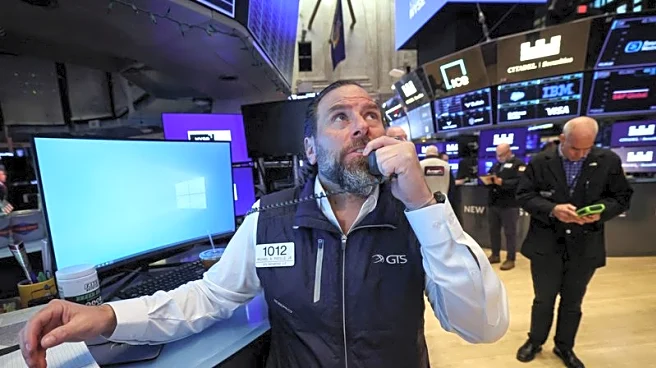What's Happening?
Target CEO Brian Cornell is set to step down from his position effective February 1, 2026, after more than a decade of leadership. Michael Fiddelke, currently the Chief Operating Officer, has been appointed as the new CEO. Cornell, who joined Target in 2014, played a significant role in transforming the company into a $100 billion enterprise, increasing revenue by $34 billion during his tenure. His departure marks a pivotal moment for Target as it faces sales declines and seeks to revitalize its brand. Fiddelke's appointment follows a comprehensive succession planning process, indicating the board's confidence in his ability to lead the company through its current challenges.
Why It's Important?
Cornell's departure and Fiddelke's appointment come at a critical juncture for Target, which is grappling with declining sales and competitive pressures. The leadership change is expected to bring a renewed focus on growth and strategic innovation. Fiddelke's deep understanding of Target's operations and his 'fresh eyes' approach are seen as key assets in navigating the dynamic retail environment. The transition underscores the importance of leadership in driving corporate strategy and adapting to market shifts, with potential implications for Target's long-term value and industry standing.
What's Next?
Target is anticipated to announce a new COO to fill the vacancy left by Fiddelke's promotion. The company will likely prioritize strategic initiatives aimed at reversing sales declines and enhancing its competitive edge. Stakeholders will be watching closely to see how Fiddelke's leadership influences Target's strategic direction and operational performance. The upcoming period will be crucial for Target as it seeks to leverage its strengths and address existing challenges to achieve sustainable growth.
Beyond the Headlines
The internal appointment of Fiddelke highlights Target's commitment to continuity and leveraging internal talent. However, it also raises questions about the company's ability to innovate and adapt to external pressures. The decision reflects a strategic choice to maintain stability while seeking incremental changes, which may impact Target's agility in responding to industry trends and consumer demands.










